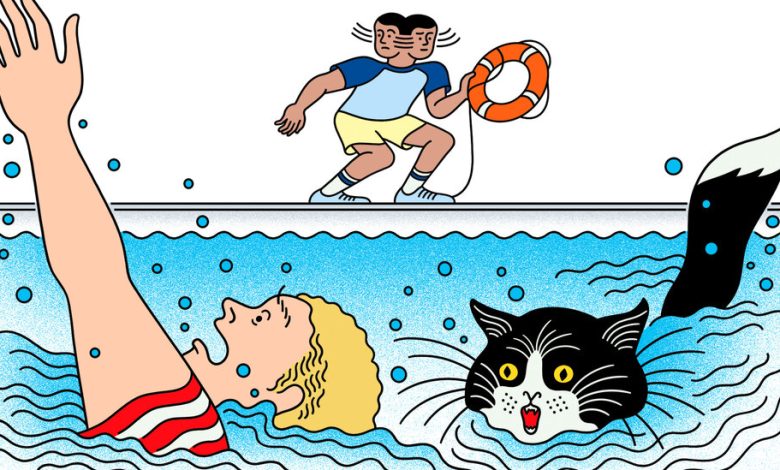My Boyfriend Said He’d Save Our Cat but Not a Stranger if Both Were Drowning

My boyfriend and I were talking about protecting human life, and he said that he doesn’t believe that human life is necessarily worth more than any other kind of life. For example, he said that if one of our cats were drowning next to a human who was a stranger to us (who was also drowning) and he could save just one, he would choose our cat. Is this morally wrong?
— Name Withheld
From the Ethicist:
For many people, pets are fictive kin; they’re considered part of the family. In one study I’ve seen, hundreds of people were asked to consider how they’d respond if their pet ran in front of a bus at the same time that a foreign tourist stepped in front of it. They can only save one; the other will be killed. Which would they rescue? What the experimental psychologist Richard Topolski and colleagues found was that about 40 percent of respondents said they’d save their pet. If the choice were between their pet and a hometown stranger? The numbers dropped by just a few percentage points. A distant cousin? Almost a quarter of respondents still put their pet first. Not just any pet, mind you — they were choosing their pet.
These aren’t people with some grave defect of character. They have a duty of care toward their animal companion; the creature depends on them and, over time, they’ve developed a strong bond: a sense of affection, companionship, loyalty, all twined around a whole lot of memories. So the choice of plumping for your pet is, you could say, very human.
But yes, it’s very wrong. (In states with “duty to rescue” laws, it could be illegal too.) Those human strangers? They had rich emotional lives and they had plans, short-term and long-term, big and small; it’s a good guess that they were also part of other people’s plans, other people’s emotional lives. They had friends, co-workers, kin, dependents — maybe some assortment of parents, children, siblings, cousins — and possibly a spouse or life companion. You can expect the suffering that their death will bring to be deep, the ripple effects wide.
We shouldn’t assume that how people respond on questionnaires will necessarily predict how they’ll respond in real life, of course. Still, to see the full, reciprocal and socially enmeshed humanity of an abstract stranger can take work. I’m saying that your boyfriend is wrong; I’m not saying that he’s rotten. The more pressing question for you is this: If he had to choose between you and one of those cats, would he have to think it over?
